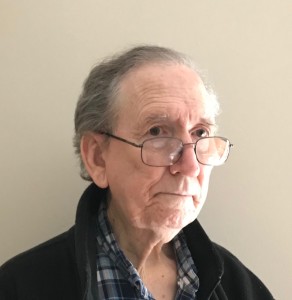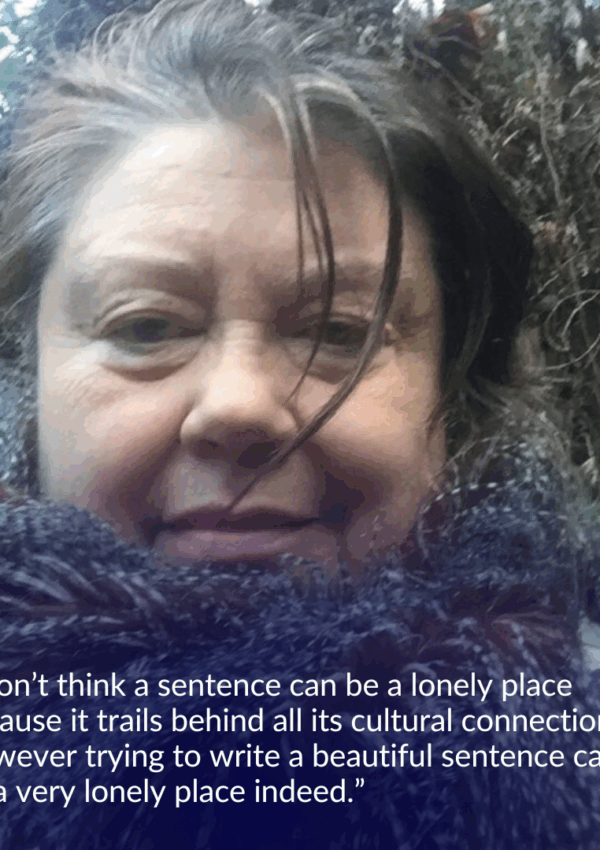I previously wrote a few words on the importance to the writer of the suspension of disbelief. I would like to say a little more because I did not say all that I feel on that topic.
Samuel Taylor Coleridge wrote of “the willing suspension of disbelief” as being a necessary act in the enjoyment of a dramatic or literary work. The auditor or reader, he said, has to suspend disbelief if he is to enter the world of the writer.
I would argue that the suspension of disbelief is even more essential for the fiction writer than for the reader because without it, no writer can achieve that intensity in his work necessary to make the reader believe. If you do not believe, your work will ring hollow. It will seem all show, and no grit. Hallie Burnett has written that “one cannot stress too often that your own credibility to a reader is equal only to the quality of belief you yourself are putting into the venture.” I agree with Burnett and would add that sensible things, and the life within sensible things, must be held in close harmony with the suspension of disbelief if one is to create a vivid and intense imaginary world. Then your work will come to a vivid life, as in this passage from Nathaniel Hawthorne’s first novel, Fanshawe:
The party had now turned their horses, and were about to resume their ride in a homeward direction; but Edward perceived that Fanshawe, having lost the excitement of intense thought, now looked weary and dispirited.
”Here is a cottage close at hand,” he observed. “We have ridden far, and stand in need of refreshment. Ellen, shall we alight?”
She saw the benevolent motive of his proposal, and did not hesitate to comply with it. But, as they paused at the cottage door, she could not help but observe that its exterior promised few of the comforts which they required. Time and neglect seemed to have conspired for its ruin; and, but for a thin curl of smoke from its clay chimney, they could not have believed it to be inhabited. A considerable tract of land in the vicinity of the cottage had evidently been, at some former period, under cultivation, but was now overrun by bushes and dwarf pines, among which many huge gray rocks, ineradicable by human art, endeavored to conceal themselves. About half an acre of ground was occupied by the young blades of Indian-corn, at which a cow gazed wistfully over the mouldering log-fence. These were the only agricultural tokens. Edward Walcott, nevertheless, drew the latch on the cottage door, after first knocking loudly but in vain.
The apartment which was thus opened to their view was quite as wretched as its exterior had given them reason to anticipate. Poverty was there, with all its necessary and unnecessary concomitants. The intruders would have retired had not the hope of affording relief detained them.
From here, Hawthorne describes the two sisters who live there, one mad, the other mean-spirited. What strikes me about this whole scene is that it seems as if Hawthorne had observed this very place. And he just might have.
Or one might instance a passage from Ambrose Bierce, a great 19th Century American short story writer. The passage is from “Chickamauga”:
One sunny autumn afternoon a child strayed away from its rude home in a small field and entered a forest unobserved. It was happy in a new sense of freedom from control, happy in the opportunity of exploration and adventure; for this child’s spirit, in bodies of its ancestors, had for thousands of years been trained to memorable feats of discovery and conquest—victories in battles whose critical moments were centuries, whose victors’ camps were cities of hewn stone. From the cradle of its race it had conquered its way through two continents and passing a great sea had penetrated a third, there to be born to dominion and war as a heritage.
That is the first paragraph of a great short story. It has the feel of intense conviction.
What Hawthorne and Bierce both have going for them is a conviction of the veracity of their narrative. I might further instance a passage from my own novel in progress, Daniel’s Chains:
Quite as bad was a dinner the McDuffies held, the better to impress Mama and Papa, I believe. Among the guests was a man I had a hard time not staring at: he was one of Poe’s grotesques, with a normal torso but legs stunted by childhood illness. They were the legs of a dwarf. This grotesque man was a lawyer, more erudite than anyone I had met. He knew not only Common Law, but Roman and Civil Law, and he quoted from people no one else in the room had ever heard of; his name was Hugh Swinton Légaré, and he shocked me. He spoke of “that scene of wild impulse and tyrannical misrule, a pure democracy.”
“Who could ever have dreamed,” he said, “that the law of brute force which now crushes Europe should be deliberately adopted in America, instead of the really sublime institutions of a federal jurisdiction?” He believed in law by judges, not legislators. Even more did he believe in law by aristocracy. South Carolina was on the right track, for no other state was so little democratic as the Palmetto state, and life there was superior to life anywhere else in the nation. He did not say it quite this way, but this was what he meant. Those sharing the table with Légaré fell in line with him; they agreed. I was appalled: the gross inequities of Charleston were not just a way of life, but a way of thought. The immense chasm, that utter lack of a middle class, between the super-rich and the abject poor was approved, and so was the way men like Ed McDuffie lorded it over the countryside.
I looked around the table and knew I must go north. I thought of my fight with the white-haired boy and of my muted conflicts with Missy and James when I tried to help them with chores and saw I could not be friends with those who most drew forth my sympathy. The people at this table were intolerable except for my adoptive parents and Elizabeth. I felt an enormous distance between myself and my milieu, not only here in Charleston, but in Augusta, too. I felt alone, isolated. I thought: There’s no place for me south of Virginia—and maybe not there, either.
As you should perceive, I believe in Daniel’s Chains.
And that brings me to my final remark on the suspension of disbelief. The story you are telling must be intensely real in that private world you are privileged to call your own. Only then will your reader believe you.
 David Massey has a Master’s Degree in English Literature After 1660 from The University of South Carolina and while there studied creative writing under George Garrett and James Dickey. He turned rather belatedly to fiction writing as a serious occupation but has had several stories published in the last two years.
David Massey has a Master’s Degree in English Literature After 1660 from The University of South Carolina and while there studied creative writing under George Garrett and James Dickey. He turned rather belatedly to fiction writing as a serious occupation but has had several stories published in the last two years.



